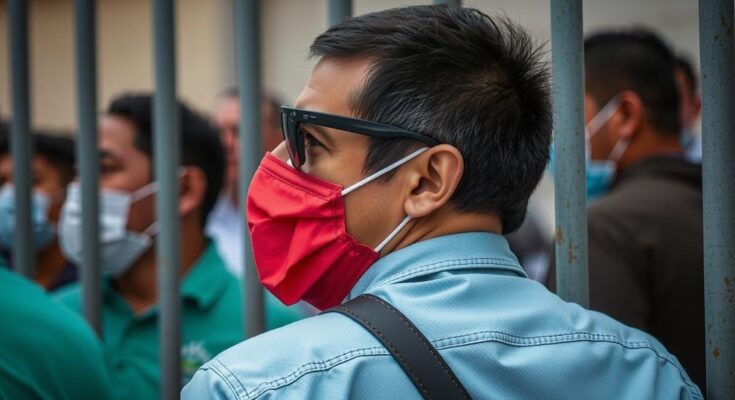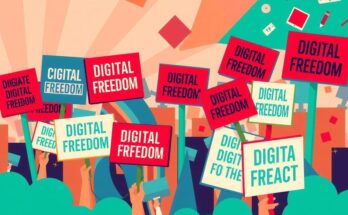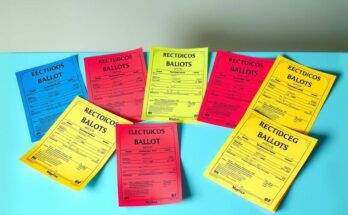The United Nations has expressed alarm over arbitrary arrests and intimidation in Venezuela ahead of opposition protests seeking to challenge Nicolás Maduro’s installation for a third term. Amidst government crackdowns, opposition leaders like Edmundo González have secured international attention, rallying support against Maduro’s election claims, which remain widely contested. Demands for transparency into electoral results amplify the urgency of the situation as political unrest escalates.
The United Nations has expressed profound concern regarding reports of arbitrary arrests and intimidation occurring in Venezuela in advance of the opposition’s scheduled protests on Thursday. Volker Türk, the UN Human Rights Chief, emphasized the necessity of de-escalation and measures to prevent further violence through a statement on X. Among those detained is Carlos Correa, the director of a non-governmental organization advocating for press freedom, who was forcibly taken by unidentified individuals on Tuesday.
In response to these events, Nicolás Maduro’s administration has mobilized thousands of police officers throughout the capital, Caracas, in anticipation of a ceremonial inauguration where Maduro intends to assume a third term in office. Meanwhile, opposition factions are rallying their supporters to participate in extensive nationwide protests on Thursday in an attempt to obstruct Maduro’s ceremonial swearing-in.
Reports indicate unrest in various cities; for instance, Valencia police deployed tear gas against demonstrators. Amid these protests, an elderly citizen, Niegalos Payares, declared, “I’m not afraid, I lost my fear a long time ago.” Another protester, Roisa Gómez from Maracay, proclaimed her commitment to defending her vote for Edmundo González, stating, “They cannot steal the election.” The National Electoral Council (CNE), predominantly aligned with the government, declared Maduro victorious in the July presidential elections, yet has yet to provide comprehensive voting data to substantiate this claim.
Numerous democratic governments and opposition leaders regard the election results as fraudulent, subsequently recognizing Edmundo González as the rightful president-elect. Following his exile to Spain in September, González has sought international support, notably meeting U.S. President Joe Biden, who advocated for a peaceful transition of power. In Panama, González secured thousands of voting records the opposition gathered, which they assert demonstrate his electoral victory over Maduro.
Amid intensifying international backing for González, his government has retaliated with threats, issuing an arrest warrant against him and offering a substantial monetary reward for information leading to his capture. In the context of retribution, individuals connected to González have faced threats, including the recent abduction of his son-in-law. María Corina Machado, an opposition leader who was prevented from running in the elections, noted her own experience of intimidation involving security agents surrounding her elderly mother’s residence. Furthermore, the recent arrest of opposition figure Enrique Márquez has drawn criticism from human rights organizations, amidst claims from the government alleging his involvement in a coup attempt, a narrative that the U.S. State Department has vehemently dismissed as “categorically false.”
The current situation in Venezuela is characterized by escalating tensions following a disputed presidential election in July, where the government declared Nicolás Maduro the winner, despite widespread allegations of electoral fraud. The opposition, led by figures such as Edmundo González, has gained international recognition, advocating for democratic reforms and a peaceful transfer of power. As opposition protests loom, reports of government repression, including arbitrary detentions and intimidation tactics, remain prevalent, drawing concern from international bodies like the United Nations.
The United Nations’ alarm regarding arbitrary arrests in Venezuela reflects the broader global concern about human rights violations amid escalating political tensions. Opposition figures like Edmundo González continue to garner international support as they contest the legitimacy of Maduro’s government. The situation remains precarious as the Venezuelan government intensifies its crackdown on dissent, which may lead to further unrest and calls for intervention from the international community.
Original Source: www.bbc.com




